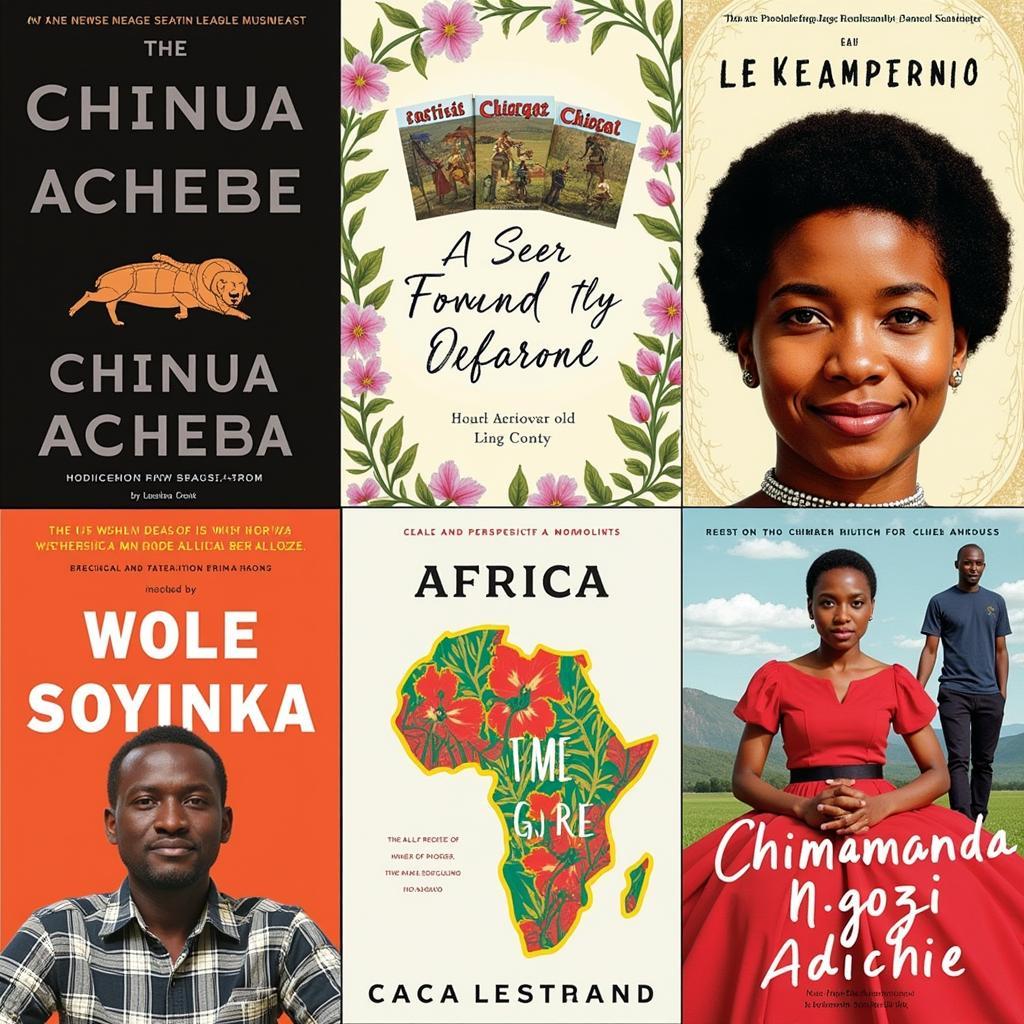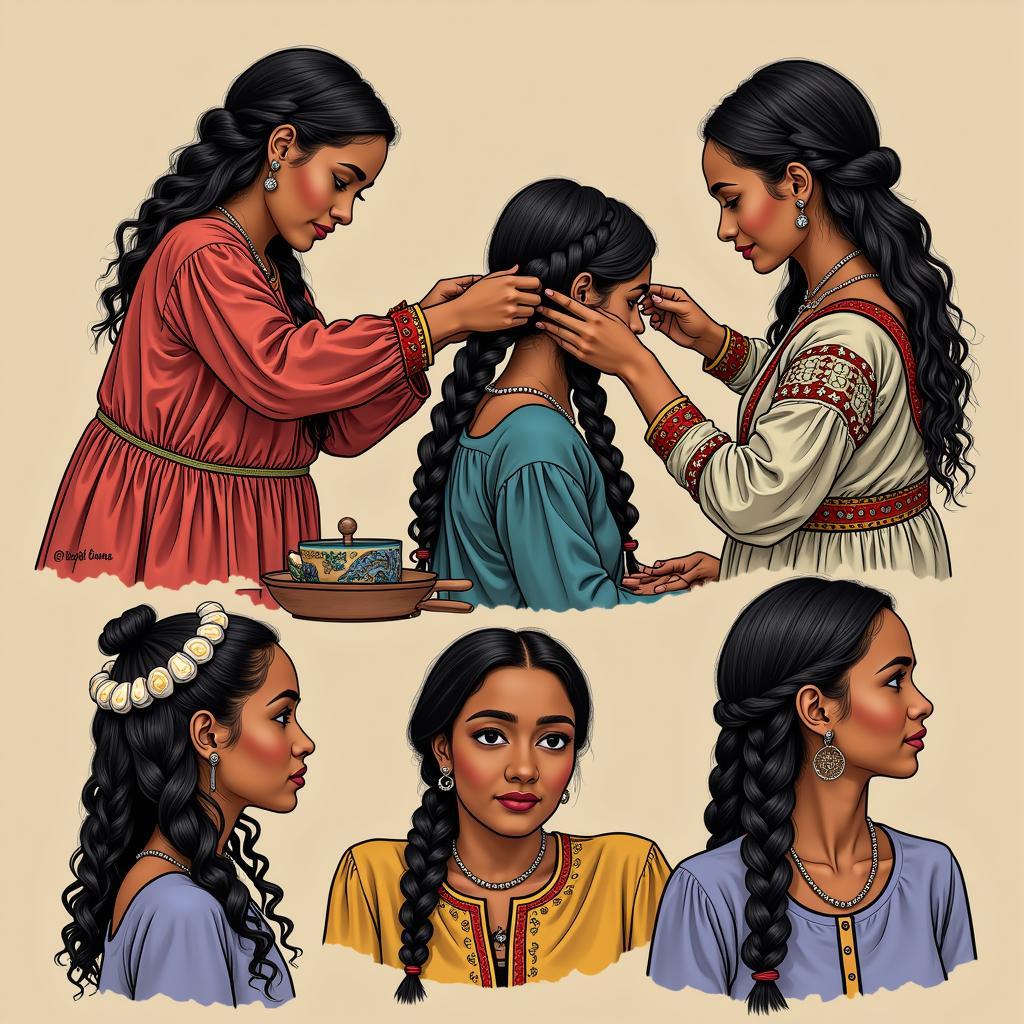African Diasporic Writers in English Literature: A Rich Tapestry of Voices
African diasporic writers have indelibly shaped the landscape of English literature, enriching it with their unique perspectives, experiences, and narratives. These authors, hailing from diverse corners of the African diaspora, have gifted the world with powerful stories that illuminate the complexities of identity, belonging, displacement, and the enduring legacy of colonialism.
Unveiling the African Diaspora
The African diaspora, encompassing individuals of African descent scattered across the globe, is not a monolithic entity. It’s a vibrant tapestry woven from centuries of forced and voluntary migration, resulting in distinct communities with their own cultures, traditions, and relationships with their ancestral homelands. This rich diversity is reflected in the works of African Diasporic Writers In English Literature, each voice adding a unique thread to the tapestry.
Pioneering Voices and Early Influences
 Early Influencers in African Diasporic Literature
Early Influencers in African Diasporic Literature
The roots of African diasporic writing in English can be traced back to the harrowing experiences of the transatlantic slave trade. Olaudah Equiano’s 18th-century autobiography, “The Interesting Narrative of the Life of Olaudah Equiano,” stands as a powerful testament to the horrors of slavery and a pioneering work in the struggle for abolition. Phillis Wheatley, the first published African American female poet, challenged prevailing notions of race and intellect with her elegant verse. Frederick Douglass’s autobiography, “Narrative of the Life of Frederick Douglass, an American Slave,” exposed the brutalities of slavery while advocating for social justice and equality.
These early voices laid the groundwork for future generations of writers, who continued to grapple with the complexities of race, identity, and belonging in their works.
The Harlem Renaissance: A Cultural Awakening
 The Harlem Renaissance: A Literary and Cultural Movement
The Harlem Renaissance: A Literary and Cultural Movement
The Harlem Renaissance, a period of unprecedented artistic and intellectual flourishing in the 1920s, witnessed a surge in literary production from African American writers. This cultural movement, centered in Harlem, New York, celebrated Black identity, heritage, and creativity. Langston Hughes, with his evocative poetry capturing the rhythms of jazz and the everyday lives of Black Americans, became one of the era’s most prominent voices. Zora Neale Hurston’s groundbreaking novel, “Their Eyes Were Watching God,” explored the lives of Black women in the American South, challenging prevailing gender and racial stereotypes.
The Harlem Renaissance marked a watershed moment in African diasporic literature, paving the way for greater visibility and recognition of Black writers and their contributions to the literary canon.
Postcolonial Voices: Reclaiming Narratives
 Exploring Themes of Identity and Colonialism
Exploring Themes of Identity and Colonialism
The post-World War II era witnessed the rise of postcolonial literature, with African writers playing a pivotal role in reshaping global literary discourse. Chinua Achebe’s seminal novel, “Things Fall Apart,” offered a powerful critique of colonialism and its impact on African societies, challenging Eurocentric perspectives and reclaiming African narratives. Wole Soyinka, the first African Nobel laureate in Literature, explored themes of power, corruption, and cultural identity in his plays and poetry.
Contemporary African diasporic writers like Chimamanda Ngozi Adichie, Teju Cole, and Bernardine Evaristo continue to push boundaries, exploring themes of gender, sexuality, migration, and globalization through their compelling narratives.
Conclusion
African diasporic writers in English literature have made invaluable contributions to the literary world, enriching it with their diverse voices, experiences, and perspectives. From the poignant narratives of the transatlantic slave trade to the cultural awakening of the Harlem Renaissance and the powerful critiques of colonialism in postcolonial literature, these writers have left an indelible mark on the literary landscape. Their works continue to resonate with readers worldwide, offering profound insights into the complexities of identity, belonging, and the human condition.

